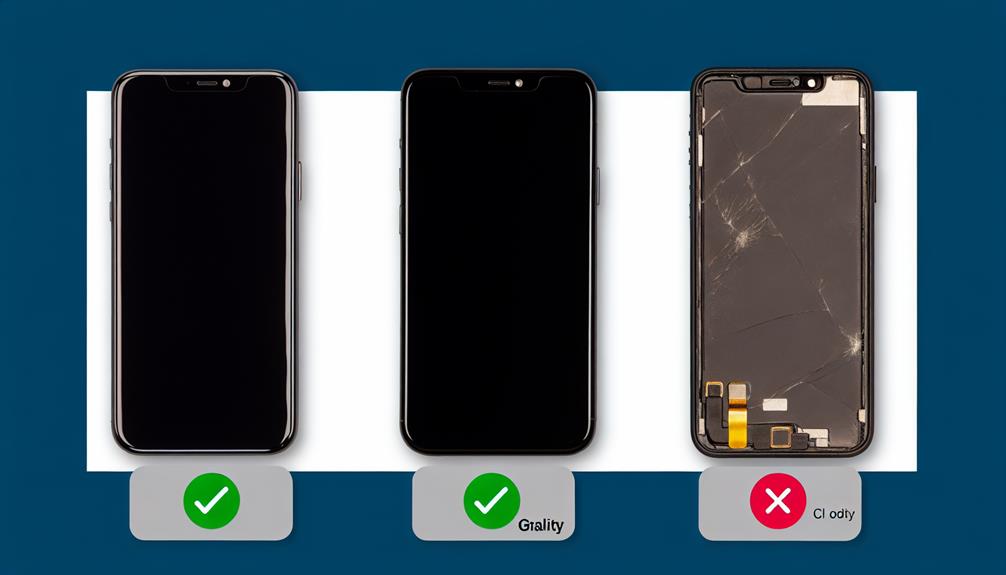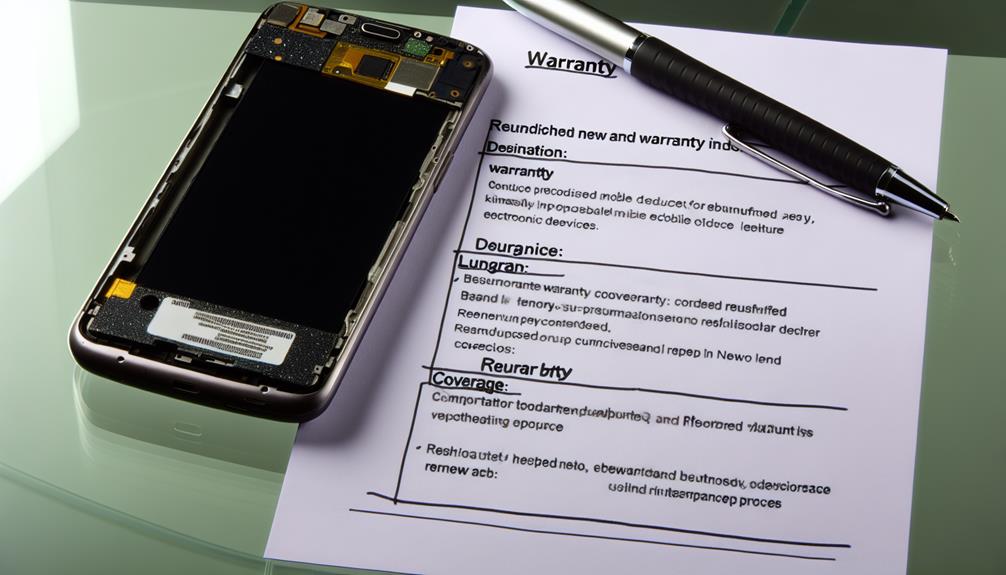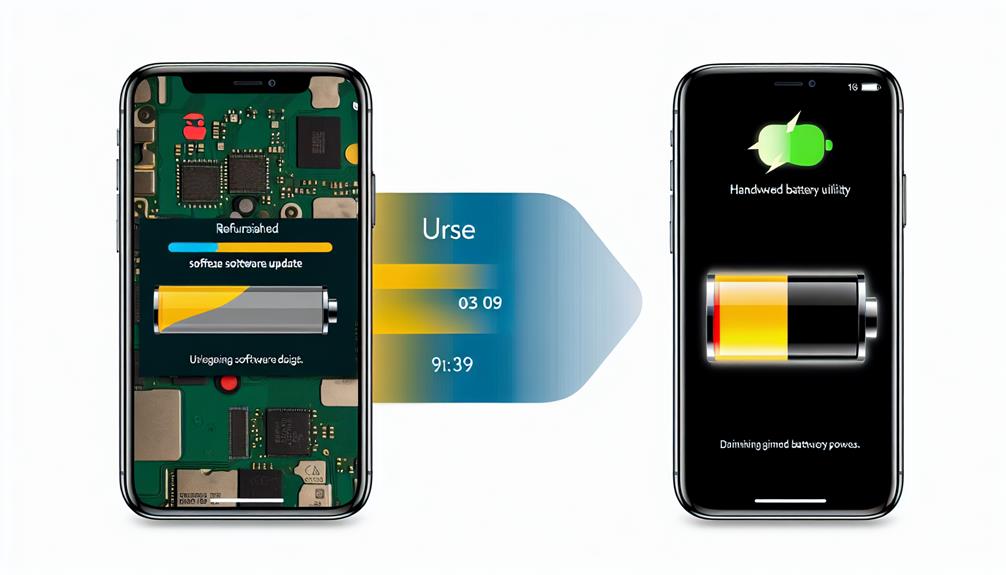Considering the rise of refurbished mobile devices, it’s like navigating a maze – there are potential rewards, but also unforeseen challenges. The allure of a lower price tag for a seemingly high-quality phone can be tempting, yet there are important factors to weigh before making a purchase. From the potential for outdated technology to uncertainties about the device’s history, the decision to opt for a refurbished mobile device requires careful consideration. However, with the right knowledge and approach, there are ways to mitigate the risks and make a savvy investment in a refurbished phone.
Advantages of Refurbished Devices
When you’re eyeing a new mobile device but your wallet is holding you back, turning to a refurbished phone could be your golden ticket. These phones come with a smaller price tag, letting you snag a recent model without breaking the bank. Each refurbished device is put through its paces with thorough checks and fixes, so they are guaranteed to work just like new. This attention to detail doesn’t just save you money—it breathes new life into the phone.
Trusted sellers are key; they put each phone through a rigorous revival, assuring you that what you buy won’t let you down. Choosing a refurbished phone means getting your hands on a top-notch gadget without the hefty cost. It’s a smart move for anyone looking to balance quality with affordability in their tech gear. Plus, it’s a win for your pocket and a high-five for the planet, as giving phones a second chance keeps them out of landfills a bit longer.
Quality Assurance and Ratings

When you’re in the market for a refurbished mobile device, it’s important to dig into the seller’s quality assurance and ratings to make sure you’re getting a device that’s reliable and in good shape. Here’s what you should keep an eye out for:
- Testing Process: Search for sellers who put their devices through a comprehensive testing and inspection routine. This guarantees that the refurbished device you’re considering has been checked thoroughly and meets high standards.
- Quality Ratings and Warranty: It’s wise to examine the quality ratings and understand the warranty details. This step is key to being confident in the quality and dependability of the refurbished phone you’re thinking about buying.
- Customer Satisfaction: Take some time to read up on what past customers have to say about the seller. Their experiences can offer valuable insight into the quality of the refurbished devices the seller offers.
- Trustworthiness: It’s essential to check out the seller’s reputation to make sure that the refurbished phone you’re interested in is up to par with high-quality standards.
Warranty Considerations

When you’re eyeing a refurbished device, it’s smart to dig into the details of its warranty. Start by checking how long it’s valid—these tend to be shorter for pre-loved phones than brand-new ones. Next, you’ll want to know what kind of mishaps and malfunctions the warranty actually covers. Just as vital is the track record of the seller when it comes to dealing with warranty issues. A quick look at customer feedback can shed light on how solid the warranty really is. If you find a bunch of thumbs-ups from buyers who’ve had their problems sorted out swiftly, that’s a good sign of the seller’s dedication to their refurbished gadgets. So, taking the time to assess the warranty specifics, peek at the seller’s history, and weigh up the experiences of other customers will steer you toward a savvy decision when shopping for a refurbished smartphone.
Disadvantages of Refurbished Devices

Refurbished gadgets often show signs of previous use, which can differ based on how much they’ve been handled and their restoration quality. If you’re eyeing a refurbished mobile device, it’s wise to consider the possible downsides and concealed issues that might be present. Here are a few drawbacks to ponder over:
- Warranty periods for refurbished phones tend to be shorter compared to new ones.
- They might not come with the latest tech, potentially slowing down performance over time.
- You might notice some wear and tear on a refurbished phone, which could make it less attractive.
- The condition and price of these phones are based on their quality grade, which might affect how well they work or look.
When shopping for a refurbished device, it’s crucial to weigh these factors carefully. Although these phones can be more affordable, understanding their limitations helps you make an informed decision. Keep in mind the reduced warranty length, potentially outdated technology, visible signs of use, and the way the phone’s condition influences its pricing and functionality.
Software Updates and Battery Life

If you’re thinking of buying a refurbished phone, it’s smart to look into its past with software updates and the health of its battery. This helps make sure the phone runs well and lasts a long time. Sometimes, refurbished phones don’t get the newest updates, which might mean missing out on cool new features and important security fixes. Also, batteries in these phones could be worn out from earlier use. So it’s a good idea to dive into the phone’s update track record and find out if that model often has troubles with updates or battery life.
You’ll want to see if you can get a new battery if needed, and if it’ll cost extra or come with a guarantee. This can really affect how much you enjoy your phone and how much you end up spending on it. Paying attention to these details will guide you towards a better choice and a happier time with your refurbished phone.
Frequently Asked Questions
1. What is a refurbished phone and should I buy one?
A refurbished phone is a used phone that has been repaired and restored to a good working order. If you’re considering to buy a refurbished phone, it’s important to weigh the pros and cons. Refurbished phones are generally more affordable than brand-new phones, but they may come with a shorter warranty.
2. What are the pros and cons of buying a refurbished phone?
When considering purchasing a refurbished phone, the pros and cons should be carefully evaluated. Some of the advantages of buying a refurbished phone include cost savings and reduced electronic waste, while potential disadvantages may include a shorter warranty period and the risk of encountering a defect. Nevertheless, purchasing a refurbished phone can be an eco-friendly option.
3. Is it safe to buy a refurbished smartphone?
Buying a refurbished smartphone can be a reliable option if you choose a reputable seller. Reputable sellers ensure that refurbished phones come with a warranty and are in good working order. This can provide peace of mind when buying one.
4. What are the advantages of buying a refurbished device?
The advantages of buying a refurbished device include cost savings, reducing electronic waste, and the opportunity to own a high-quality product at a lower price. Additionally, you may be able to purchase a brand-new phone at a significantly reduced cost.
5. Are there cons of buying a refurbished phone?
While refurbished phones offer cost savings, there are potential drawbacks to consider. These may include shorter warranty periods, cosmetic imperfections, and the possibility of receiving a device with older hardware or limited software updates. Additionally, some refurbished phones may not undergo rigorous testing, increasing the risk of encountering technical issues. However, purchasing from reputable sellers and ensuring the device undergoes thorough inspection can mitigate these concerns.






